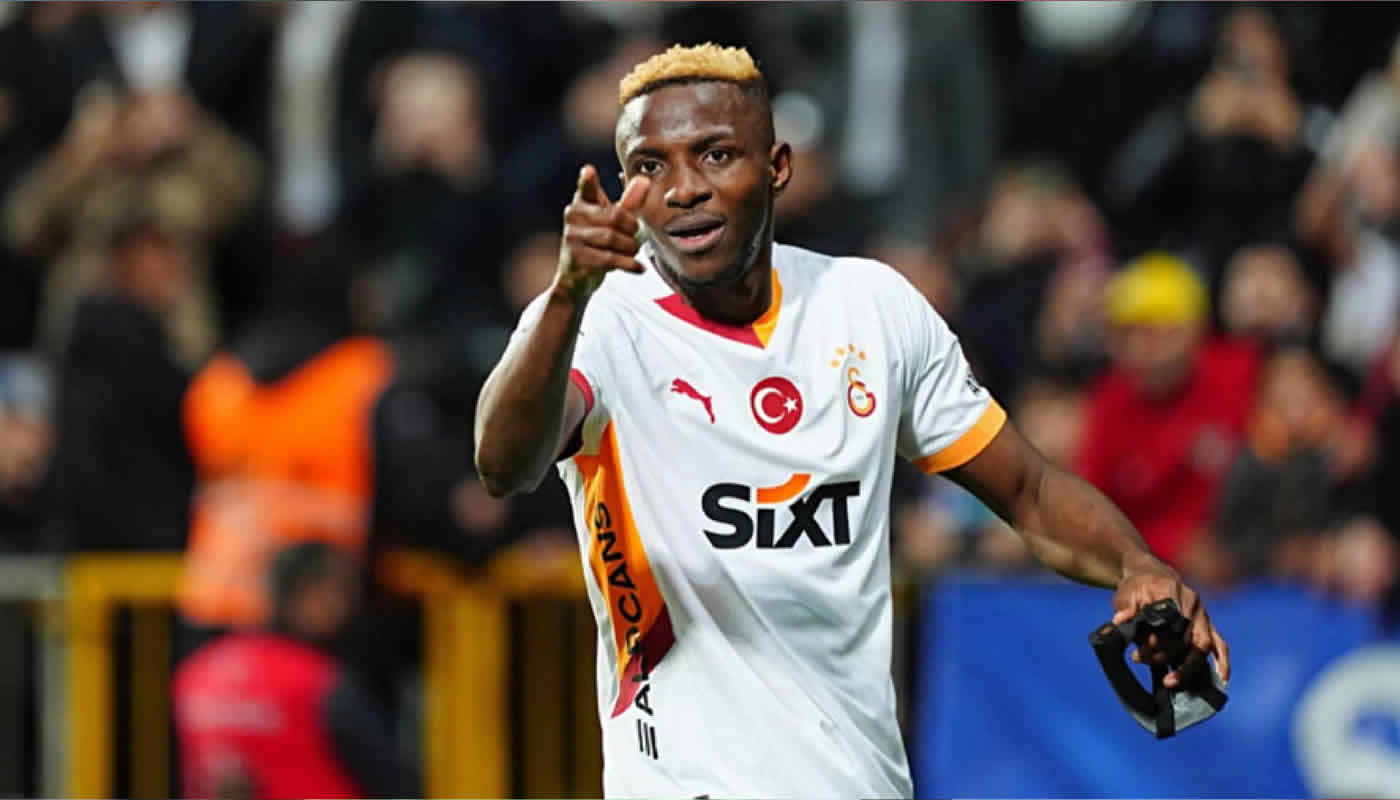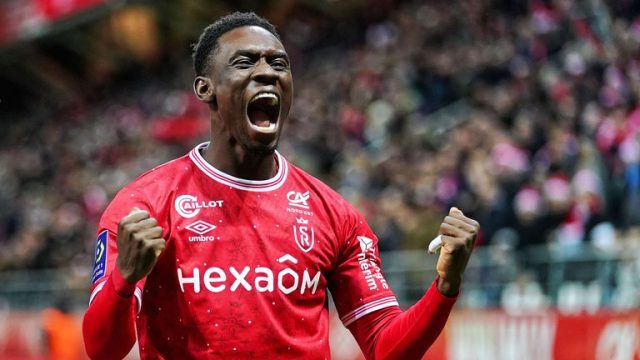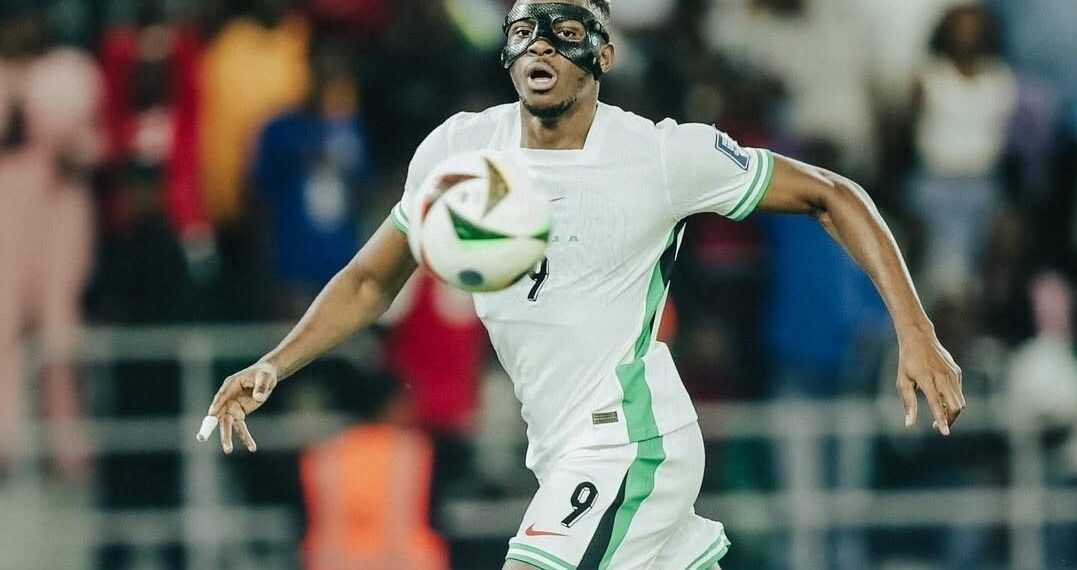Across Nigeria and indeed much of Africa, football is more than a pastime—it’s a shared passion that unites people from all walks of life. This deep-seated love for the game means emotions often run high, not just among players on the pitch, but equally among fans watching at home, in viewing centres, or gathered with mates in local bars. Over the weekend, this passion burst forth across both social media and real-life discussions, as supporters rallied around Super Eagles striker Victor Osimhen following a heated exchange during a tense Turkish Super Lig derby, as reported by The Punch.
The match at RAMS Park between Turkish giants Galatasaray and Beşiktaş, ending in a 1–1 draw, saw a pivotal moment in the 39th minute. According to eyewitness and broadcast reports, Osimhen appeared to be fouled during an aerial contest with Beşiktaş defender Emirhan Topçu. However, referee Yasin Kol controversially allowed play to continue. Clearly agitated by the perceived injustice, Osimhen confronted Topçu and seemed to grab him by the neck before players from both teams quickly intervened, preventing the situation from spiralling further.
The incident rapidly became a flashpoint online, with local and international football fans weighing in. Many supporters—especially from Nigeria and West Africa—were quick to leap to Osimhen’s defence, arguing that his reaction was an outpouring of frustration and emotion that is far from uncommon in the high-pressure world of international football.
One social media user, Thoysquare, commented on X (formerly Twitter): “Zlatan punched teammates, Balotelli fought coaches, Suarez bite humans, and they still played for elite clubs. If you think attitude is why no big team wants him, you’re not watching football, you’re watching a fantasy league in your head.” This sentiment echoes a broader belief among many supporters that players of African descent are often held to a different, and harsher, standard compared to their European or South American counterparts.
The debate took on a deeper tone when some suggested that Osimhen may have been provoked by racial abuse, an allegation that has not been officially confirmed but remains a common topic whenever African players are in the spotlight abroad. Emmanuel Nnechi shared his perspective: “We are quick to judge and condemn the victim for reacting to an ugly, racial slur while sparing the offender.”
Other fans speculated that Osimhen’s reaction could have been rooted in trauma, especially considering his career-threatening facial injury—an event that forced the Super Eagles star to wear a protective face mask during matches ever since. One X user, Escanor, wrote: “He lost his temper because it’s similar to the foul that made him have to wear a mask every game. Probably got flashbacks and lost his head.” In a society where resilience is often tested and celebrated, Osimhen’s fiery temperament can be seen as a mark of his determination, rather than mere indiscipline.
Respected commentators in Nigeria’s football circuit have weighed in, emphasising that Osimhen’s incident is by no means unique. X user Josh listed notorious examples of on-pitch altercations involving globally recognized players: “Pepe almost send Messi to his early grave, Zidane head butted Materazzi, Gattuso shoved Tottenham’s manager, Cantona kicked a fan during a match, Hazard kicked a ball boy in the chest, Lee Bowyer and Kieron Dyer (teammates) exchanged blows during a match, Luis Suarez bit Ivanovic and many but when it comes to Osimhen you all started wailing,” he noted.
Prominent social commentator David-Leo Alabi highlighted the racial double standard prevalent in football discourse: “Osimhen’s only ‘crime’ is playing with raw emotion in a sport that keeps pretending to be civilized while celebrating chaos. Football fans love passion until it’s an African showing it. Then suddenly it’s ‘terrible attitude.’” According to Alabi, there’s a tendency to label passionate displays by African players as disruptive, whereas similar actions from European players are often described as “competitive spirit.” “Yes, self-control matters. But let’s not act like football isn’t built on ego, adrenaline, and pride. If Osimhen walks away silent, they’ll call him weak. If he defends himself, he’s “out of order,” he added.
From the grassroots in Lagos and Port Harcourt to fans in Accra and beyond, this debate resonates strongly across West Africa. According to local football analyst Tunde Olatunji, “Our players carry both national hope and the weight of prejudice when they play overseas. The scrutiny is different; every heated moment is loaded with meaning that goes beyond football.”
The discussion also turned to the legacy of passionate, sometimes controversial footballers. Lamemzy, another user, pointed to stars such as Ramos, Diego Costa, and Casemiro, as well as historic incidents involving Suarez and Zidane—arguing that “it’s common with all footballers; most of the top players have done worse and are still celebrated till today.”
Vikel echoed the sentiment that much of the criticism about Osimhen’s behaviour stems from bias, writing: “You just want to tarnish a talented black guy’s image for nothing, someone that worked hard to get to where he is today.”
Beyond the flashpoint, the result marked the end of Galatasaray’s perfect start to the Turkish Super Lig season after seven straight wins. While the immediate aftermath was dominated by social media debates and analysis, the broader story remains about the expectations placed on African footballers—and the need for fair, balanced coverage of their actions and achievements.
As conversations around the incident continue, football experts stress that moments like these call for measured responses from media, clubs, and governing bodies. Former Nigerian international Segun Odewale explained: “Emotions run high in every derby globally, and referees, as well as disciplinary committees, must consider the circumstances and consistent enforcement of rules. African players, and indeed all players, deserve a level playing field.”
Looking ahead, analysts suggest that Osimhen’s passion—when channelled positively—remains one of his greatest assets. Data from previous seasons show he ranks highly in scoring and work-rate statistics among strikers in Europe, underlining his technical excellence as well as his emotional investment in the game.
For both Nigerian and global football followers, the incident offers an opportunity for deeper reflection: How do we balance our love of passion in sport with expectations of discipline? Are African players policed differently in the court of public opinion? And how should fans, officials, and media support athletes facing extraordinary pressures abroad?
Have you witnessed or experienced similar reactions in Nigerian football or at your local viewing centre? What’s your perspective on the way African players like Osimhen are judged in global football? Drop a comment below—let’s continue the conversation at home and across the diaspora. And for latest sports analysis, updates, and real voices from Nigeria and beyond, be sure to follow us on social media.
We want to hear from you! Share your thoughts on the Osimhen saga or any football story making waves in your community. Have an exclusive sports scoop, viral gist, or a story to share or sell? Get your story featured by reaching out to us at story@nowahalazone.com.
For general support or enquiries, contact support@nowahalazone.com.
Follow us for more updates and real fan stories on Facebook, X (Twitter) and Instagram! Whether you’re watching in Lagos, Kumasi, or London, your voice matters in the world of sports.










